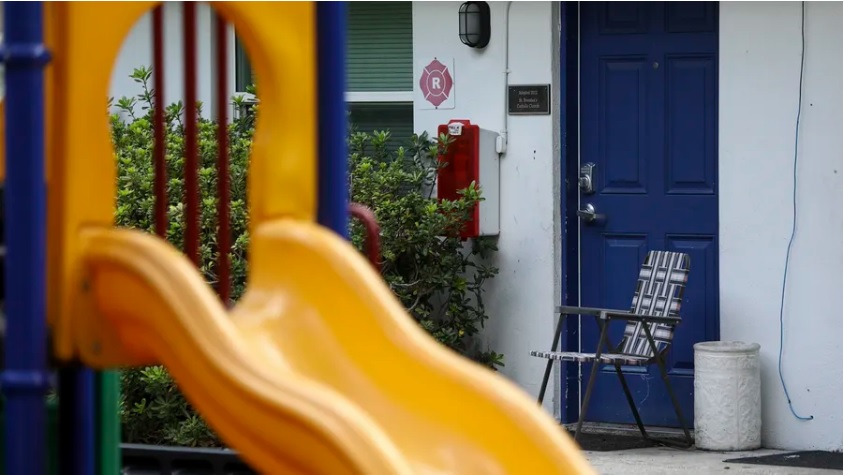Pinellas’ Largest Homeless Shelter for Families Closes Amid Funding Loss
Tracey McManus | Tampa Bay Times
Jul 12, 2022

Grace House, the largest shelter for homeless families in Pinellas County, will stop accepting new occupants this month and convert to an affordable housing complex by October, the head of the facility confirmed this week.
The Clearwater-based shelter had 80 beds in 14 apartments, accounting for more than half of permanent shelter units that accepted families with children in Pinellas, said Kirk Ray Smith, CEO of Hope Villages of America, the nonprofit that runs Grace House.
The loss is expected to strain the county’s homeless network, which already has a waiting list of about 90 families, according to Amy Foster, CEO of the Homeless Leadership Alliance.
“We were already in crisis,” Foster said.
The current occupants, who normally stay up to three months while getting financial literacy training and counseling, will be phased out by attrition.
The Juvenile Welfare Board, which awards property tax revenues to social service programs, voted unanimously in December 2020 to terminate its $400,000 annual funding of Grace House over concerns about the nonprofit’s finances and management.
Grace House initially was able to attract private donations to cover operations. But Smith said the loss of the Juvenile Welfare Board funding left him no choice but to close the shelter, even though he had resolved the issues that led to the board’s scrutiny.
“JWB put us in this situation, let there be no question about it,” Smith said.
However, Juvenile Welfare Board CEO Beth Houghton said problems at Grace House, from financial to treatment of residents, were serious enough to revoke funding. It also allowed for the dollars to be reallocated to a “rapid rehousing” program that she described as more effective than a shelter.
The funds went to St. Vincent de Paul CARES’ Family Bridge Housing, a model that places families in apartments and hotel rooms for short periods before transitioning them to permanent housing.
“We’re very mindful that every penny we spend is taxpayer money, and we absolutely have to be, and are very responsible with the funds,” Houghton said.
The board placed Hope Villages on a corrective action plan in August 2019 after a review found the nonprofit did not have background screenings filed for all staff and volunteers, according to a 2020 memo. The review also found high staff turnover, a lack of sound financial practices and two deaths of occupants from suspected overdoses.
By May 2020, the initial deficiencies had been resolved, but the corrective action plan remained due to financial concerns, according to the memo.
Hope Village’s fiscal year 2019 audit, reviewed in August 2020, noted a series of material weaknesses, including grants and cash accounts not being reconciled, and revenues and expenses not recorded in the general ledger.
Smith said those issues were more the result of growing pains than grounds to lose critical funding. Houghton confirmed the last two financial audits submitted to the Welfare Board after it ended the Grace House funding showed no deficiencies.
When he took over the nonprofit in 2016, then called Religious Community Services, he said it was in a $1 million deficit and “three months from insolvency.” By 2020, it had grown to a $13 million operating budget and a $100,000 deficit.
Founded in 1967, Hope Villages serves 150,000 people between its food bank, a center for women at risk of domestic abuse, and Grace House, where 90 percent of residents graduated to permanent housing before the closure.
The Welfare Board is continuing to fund $452,250 a year for Hope Villages’ domestic violence shelter, The Haven.
Houghton said the board continues to fund the domestic violence program because persistent problems were specific to management of the Grace House shelter. In September 2020, three current and one former Hope Villages staff members told the Welfare Board about Grace House management treating participants and employees poorly. In one example, shampoo was not supplied to participants, Houghton said.
Smith said Grace House maintains a 91 percent approval rating from participants.
He said Hope Villages will continue its intensive services for the homeless, like counseling and financial literacy, but it is looking to the future with its affordable housing at Grace House.
Read the article at https://www.tampabay.com/news/pinellas/2022/07/12/pinellas-largest-homeless-shelter-for-families-closes-amid-funding-loss/
